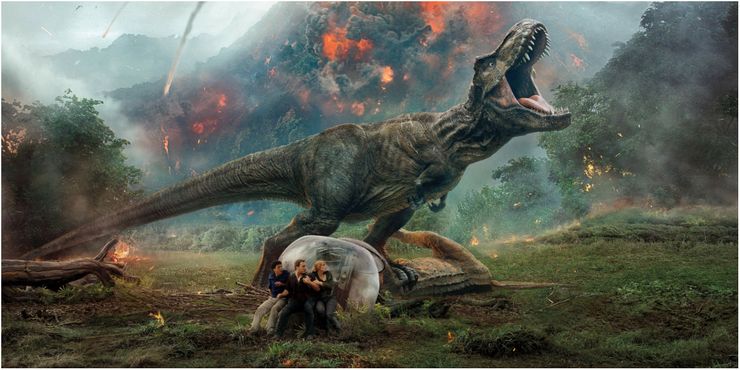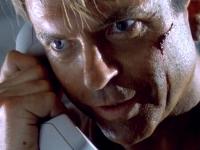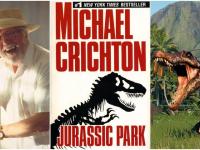Jurassic World 3: Problems From The First Two Movies Dominion Needs To Fix

Jurassic World: Dominion must fix the mistakes made by Jurassic World and Fallen Kingdom, which relied too much on Jurassic Park nostalgia.
As the sixth feature film in the Jurassic Park franchise and the third in the Jurassic World franchise, Jurassic World: Dominion needs to fix the problems of the first two World movies. Despite the financial successes of Jurassic World and Jurassic World: Fallen Kingdom, the sequel trilogy has so far been met with mixed to negative reviews, with many applauding it for its effects and entertainment value yet agreeing that it lacks the magic and innovation of its predecessor.
Set for release in 2021, Jurassic World 3 sees Colin Trevorrow returning to the director’s seat after having helmed 2015’s Jurassic World. Trevorrow also co-writes the screenplay alongside Emily Carmichael, having previously co-written the screenplays to both Jurassic World and Fallen Kingdom. Chris Pratt, Bryce Dallas Howard, Sam Neill, Laura Dern, Jeff Goldblum, Jake Johnson, Omar Sy, Daniella Pineda, Justice Smith, BD Wong, and Isabella Sermon are all set to reprise their roles from previous films, with the addition of Mamoudou Athie, DeWanda Wise, Dichen Lachman and Scott Haze in as of yet unconfirmed roles.
The plot details are of course being kept under wraps, though it is likely Jurassic World: Dominion will further explore the plot threads established in Fallen Kingdom, namely the consequences and applications of human cloning and dealing with the surviving dinosaurs now scattered around the globe, perhaps even recovering and relocating them to another island or sanctuary. Jurassic World 3 has a chance to redeem the sequel trilogy and recapture some of the magic that made Jurassic Park an instant classic, something which the Jurassic World movies have so far failed to do.
Jurassic World 3 Needs To Make Dinosaurs Scary Again

Who can forget the utter terror felt by millions of movie-goers when the famous T-Rex made its first appearance in Jurassic Park? It is easy to forget, in the age of CGI, how awe-inspiring and often frightening the sight of dinosaurs were in 1993. Whereas the original movie is a horror science-fiction adventure, the Jurassic World films have so far stayed comfortably in the realm of action blockbusters. Onscreen dinosaurs seem to have gone the way of most cinematic villains and monsters, in that they are now too familiar to be frightening. Claire Dearing (Howard) likely said it best when explaining why the scientists felt compelled to genetically engineer the Indominus Rex: “no one’s impressed by a dinosaur anymore.”
At the very least, that is the case for dinosaurs in and of themselves. Horror can still be achieved from creating tension, uncertainty, and presenting a real threat to the characters, as the 2019 short film Battle at Big Rock managed to do. A big reason why Jurassic World failed in that department was because there was too much insistence on the humanization and de-animalization of the ‘good’ dinosaurs. It was far too clear which of them were friendly and even, for instance in Blue’s case, tame, and which are ‘evil’ and predatory.
There are two ways in which Jurassic World 3 can return to its horror roots. The first would be to go back to dinosaurs as animals, with unpredictable and predatory behaviors. It’s fine enough to have herbivores be gentle giants, but carnivorous creatures have to act like predators rather than large pets, as Jurassic World tried to do with the raptors. Tension can be relied upon to create fear when visual horror has become too familiar to its audience; it is the reason why the Jurassic Park scene of the raptors in the kitchen remains one of the scariest moments of modern cinema, a complete masterpiece of dread.
A second way, which might sound a little defeatist, would involve Dominion moving away from dinosaurs as a source of horror and instead leaning into the human cloning element introduced in Fallen Kingdom. Think how effectively The Silence of the Lambs set up Buffalo Bill as the villain, only to turn Hannibal Lecter into the real source of terror. Perhaps turning away from the well-trodden dinosaur arena and to the uncanny, as-yet unknown territory of human clones and their uses can make the franchise scary again.
Dominion’s Characters Need Compelling Arcs

Both Jurassic World and Fallen Kingdom failed to provide any compelling human drama alongside its dinosaurs. In order to be both afraid of the dinosaurs and afraid for the characters, viewers first need to be invested in the characters’ survival. Yet thus far, the characterizations of Owen Grady (Pratt) and Claire Dearing are thoroughly flat and uninteresting. Owen is too cool and laid-back, an amalgamation of tropes from the motorcycle-riding bachelor, to the burly, off-the-grid lumberjack and genius animal behaviorist. He is just a convenient set of talents and provider of quippy one-liners, without any particular depth or backstory. He never looks or acts as though he’s in trouble, and so the audience never feels compelled to care about him.
Likewise for the trilogy’s other main character, Claire is a cold, frosty stock character. As far as the uptight, workaholic career-girl trope goes, Claire is right in there, minus the agency of said career-girl. If anything, she is eventually reduced to the role of damsel in distress, despite having been initially portrayed as tough and independent. She barely has enough characterization to act as a foil to Owen’s freewheeling, bad boy with a heart of gold stereotype. Likewise, in Jurassic World her nephews are simply there to serve as the children that need saving.
The main issue with the characters of the Jurassic World movies is that they seem purely functional. The audience feels no emotional tie or investment in their storyline, and they are barely afforded any depth or development that would make them anything other than interchangeable cogs in the storytelling machine. Jurassic World 3 has a chance to develop its characters, primarily Owen and Claire, in a way that keeps audiences emotionally invested and raises the stakes, something which the trilogy has yet to achieve.
Move Away From Jurassic Park Nostalgia (& Remember Why The First Movie Worked)

Though this applies more to Jurassic World than to Fallen Kingdom, both movies still felt like they were keeping to a checklist of Easter eggs and visual references to Jurassic Park, without ever hitting the core beats of what made the original a stand-out. From a close-up to a blinking dinosaur eye, to near misses as a human holds his breath to avoid dinosaur detection (despite the fact that the I-Rex has heat vision). Paying homage is one thing, but relying on nostalgia to keep an audience interested will only be successful for so long, particularly when Jurassic World rang so hollow, coming across as a cheap rip-off rather than a deferential tribute to Jurassic Park.
It is therefore unfortunate that, while respectably attempting to move away from the original movies, Fallen Kingdom was such a messy film. However, perhaps the attempt to go into riskier storytelling territory with its plot involving corporate conspiracy, bio-engineered weaponry on the global black markets and human cloning, will all pay off as these same threads are further developed in Jurassic World 3.
However, with Goldblum, Dern and Neill set to return to Dominion, the signs worryingly suggest that the newest movie will continue to milk audience nostalgia. It has already been established that the Jurassic World franchise cannot recapture the same feeling of wonderment that Steven Spielberg’s Jurassic Park evoked, yet what has damned Jurassic World is its reluctance to aim for daring new plot directions. What Jurassic World 3 needs to realize is that audiences have already seen Jurassic Park; they now want something new.
Source: https://screenrant.com/








